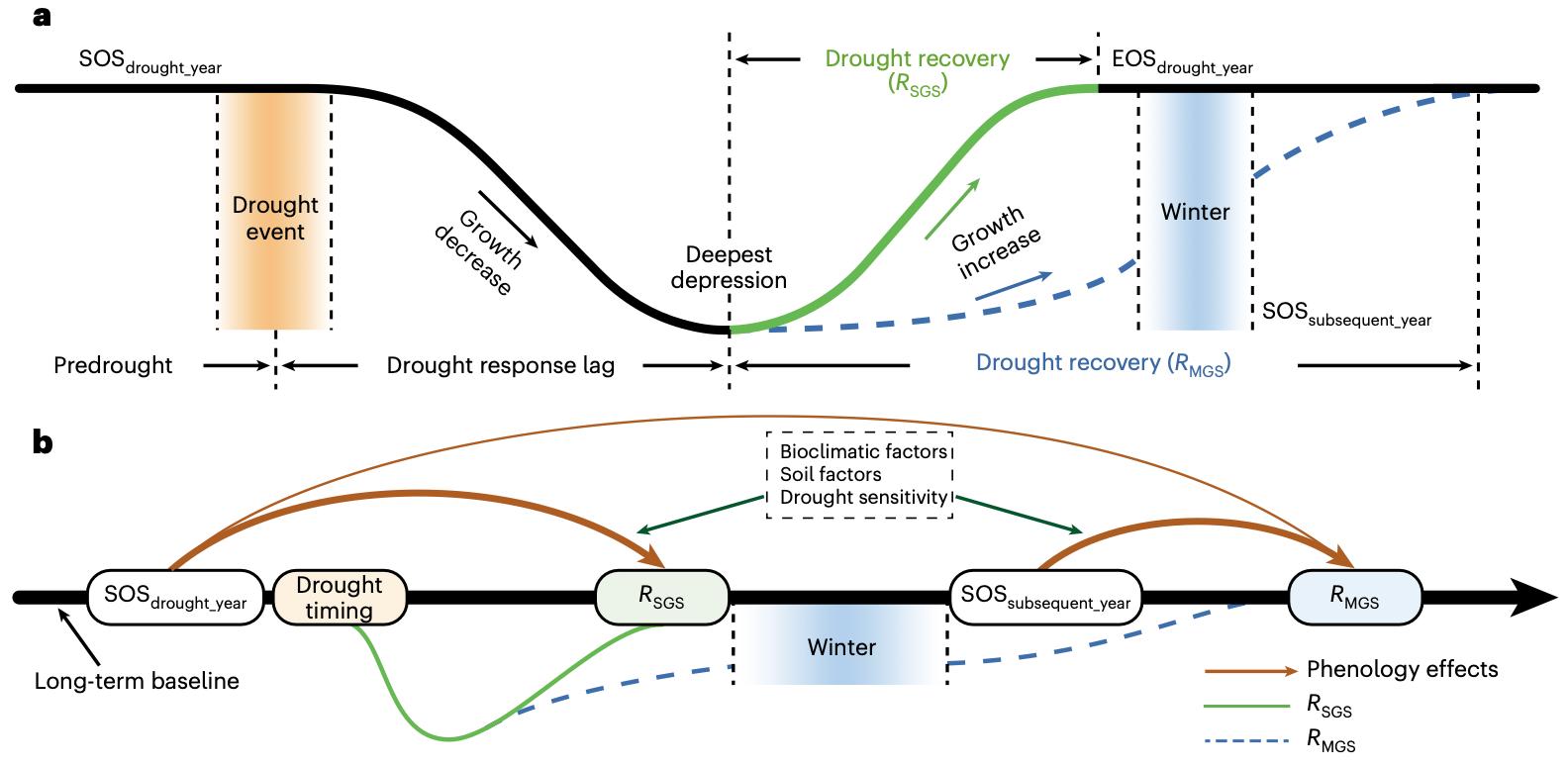Widespread spring phenology effects on drought recovery of Northern Hemisphere ecosystems

WU Xiuchen | Nature Climate Change
Widespread spring phenology effects on drought recovery of Northern Hemisphere ecosystems
Yang Li, Wen Zhang, Christopher R. Schwalm, Pierre Gentine, William K. Smith, Philippe Ciais, John S. Kimball, Antonio Gazol, Steven A. Kannenberg, Anping Chen, Shilong Piao, Hongyan Liu, Deliang Chen & Xiuchen Wu
Nature Climate Change
Published January 19 2023
https://www.nature.com/articles/s41558-022-01584-2
Abstract
The time required for an ecosystem to recover from severe drought is a key component of ecological resilience. The phenology effects on drought recovery are, however, poorly understood. These effects centre on how phenology variations impact biophysical feedbacks, vegetation growth and, ultimately, recovery itself. Using multiple remotely sensed datasets, we found that more than half of ecosystems in mid- and high-latitudinal Northern Hemisphere failed to recover from extreme droughts within a single growing season. Earlier spring phenology in the drought year slowed drought recovery when extreme droughts occurred in mid-growing season. Delayed spring phenology in the subsequent year slowed drought recovery for all vegetation types (with importance of spring phenology ranging from 46% to 58%). The phenology effects on drought recovery were comparable to or larger than other well-known postdrought climatic factors. These results strongly suggest that the interactions between vegetation phenology and drought must be incorporated into Earth system models to accurately quantify ecosystem resilience.

Fig. 1: Schematic diagram to quantify drought recovery and the governing processes.

